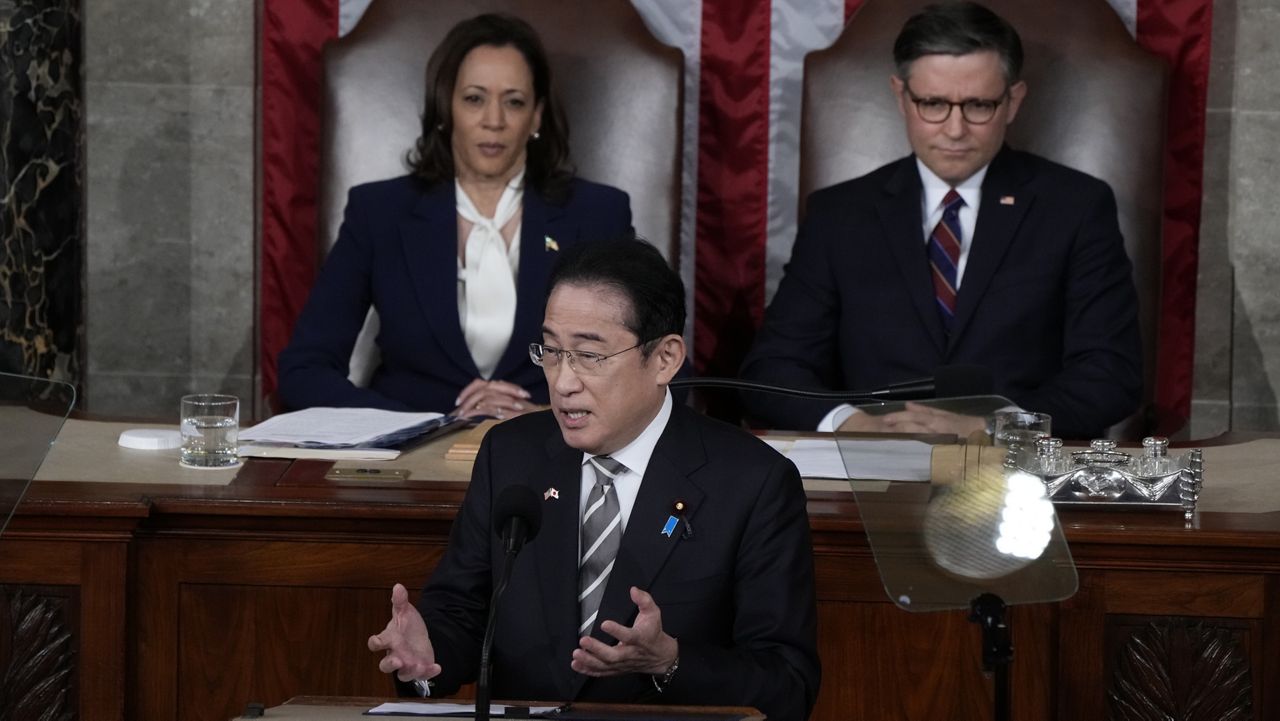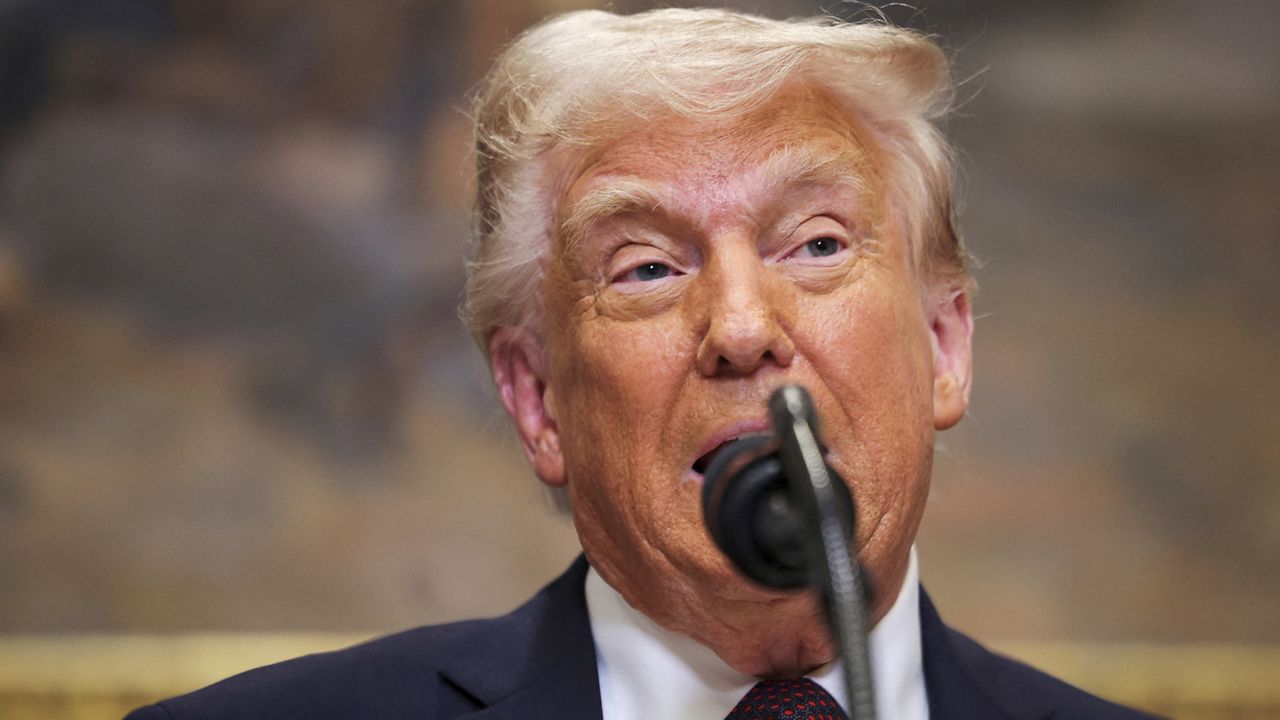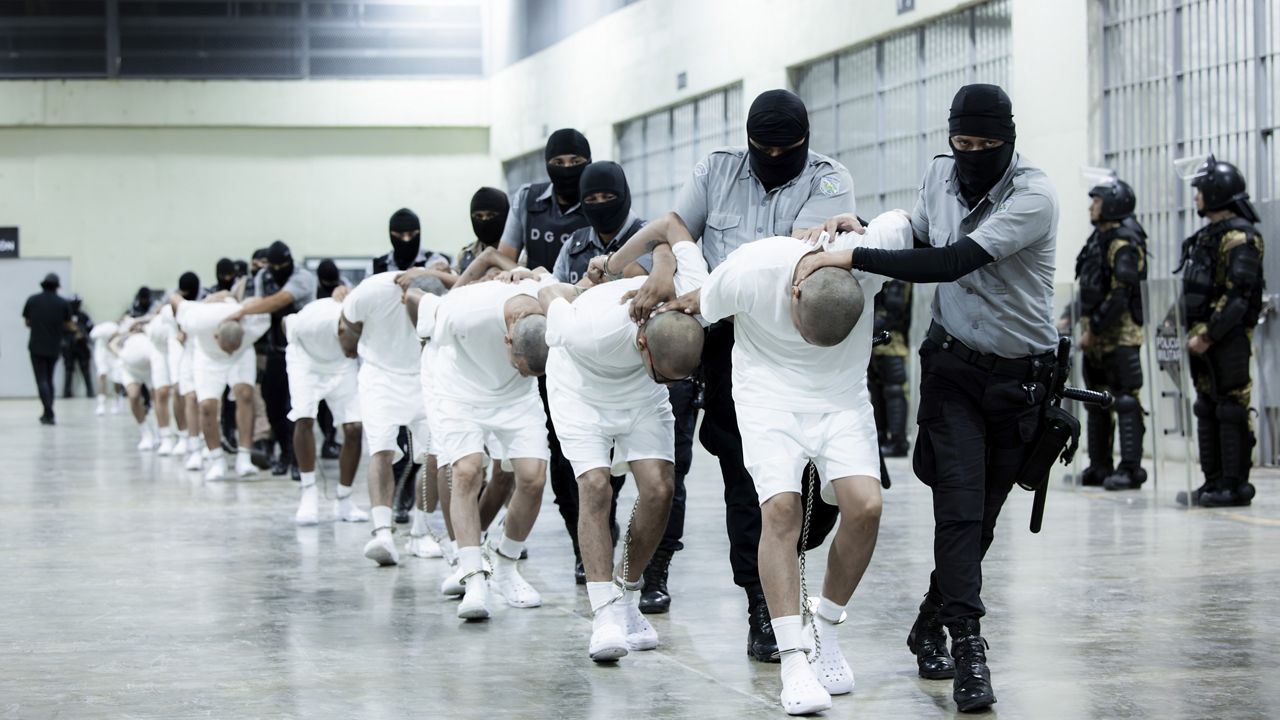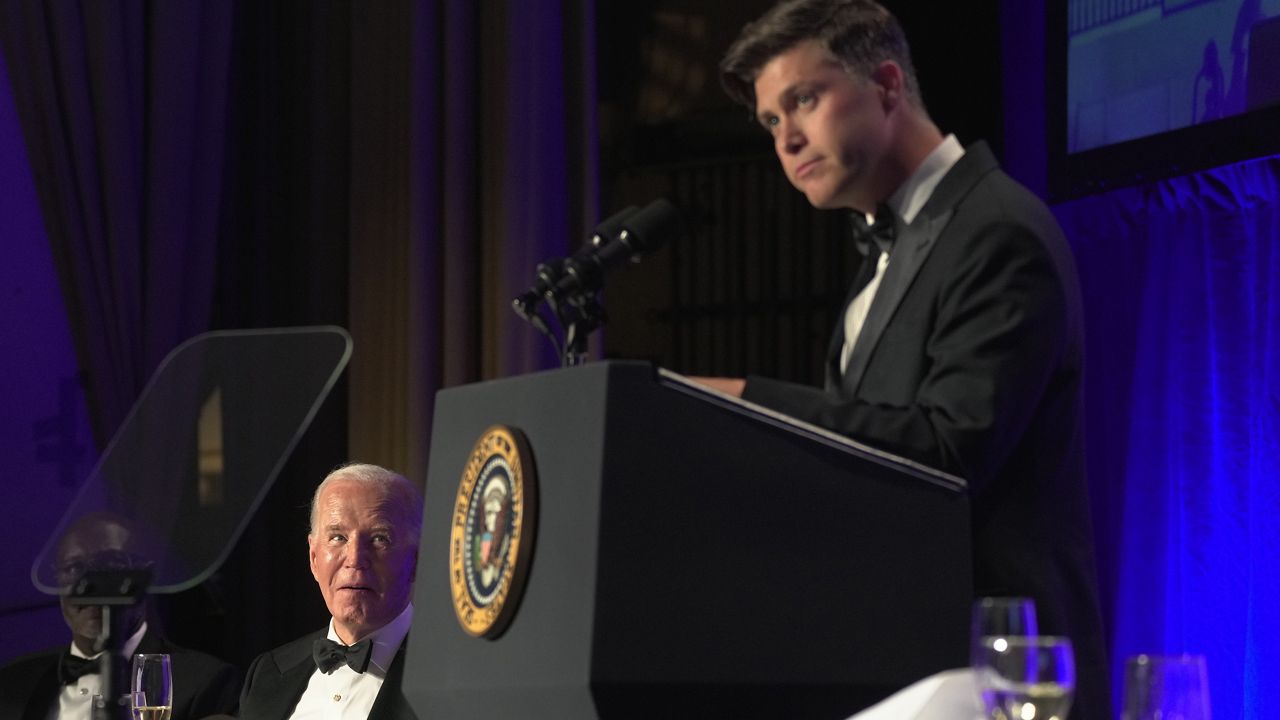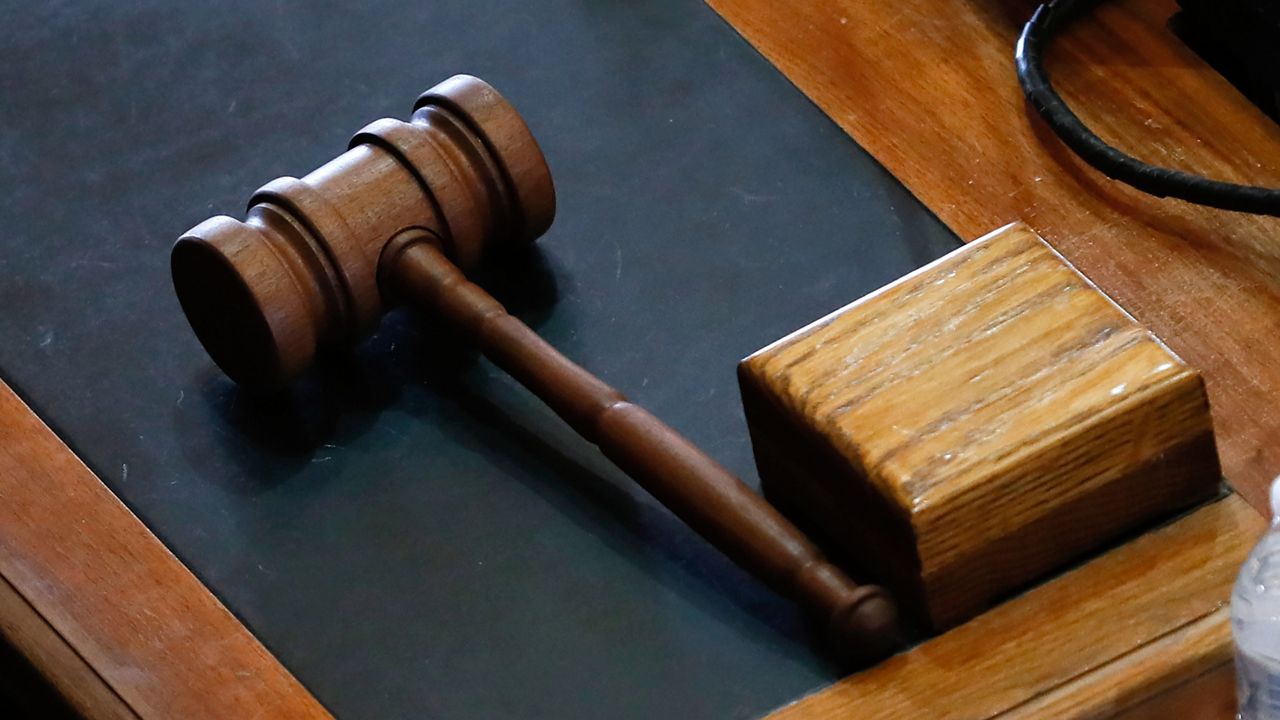Fresh off a glitzy White House state dinner and a joint commitment with President Joe Biden to boost defense cooperation between their two nations amid concerns over China, Japanese Prime Minister Fumio Kishida made his way to Capitol Hill on Thursday to address both chambers of Congress.
Marking only the second time a Japanese prime minister has delivered such an address to a joint meeting of Congress, Kishida evoked the role of the U.S. globally following World War II, urging lawmakers not to walk away from its commitments on the world stage.
“The U.S. shaped the international order in the postwar world through economic, diplomatic, military, and technological power,” Kishida said. “It championed freedom and democracy.”
“The world needs the United States to continue playing this pivotal role in the affairs of nations,” he continued. “And yet, as we meet here today, I detect an undercurrent of self-doubt among some Americans about what your role in the world should be.”
Among those sitting in the House chamber on Thursday to listen to the prime minister’s remarks were some lawmakers, particularly in the GOP, who have grown more hesitant about the involvement of the U.S. in foreign affairs. Many have taken on former President Donald Trump’s “America First” philosophy.
“This self-doubt is arising at a time when our world is at history's turning point,” Kishida said on Thursday. “The post-Cold War era is already behind us, and we are now at an inflection point that will define the next stage of human history.”
In perhaps the most recent and clear examples of that reluctance, the House, despite pleas from Biden, has yet to pass a package with billions in foreign aid to Ukraine amid Russia’s invasion, Israel amid the war in Gaza and allies in the Indo-Pacific as China exerts its influence. The bill would also provide humanitarian aid to civilians in Gaza.
The Senate, which has seen less of a push toward isolationism among the GOP, particularly its leadership, passed the $95 billion foreign assistance package in February, leaving its fate to rest with Speaker Mike Johnson, R-La., and the House GOP. Biden has been asking Congress to approve more funds for Ukraine since last year.
Senate Republican Leader Mitch McConnell said earlier this week that he hoped Kishida’s visit would underscore “that we’re in a worldwide situation here against the enemies of democracy — led by China, Russia and Iran.”
Japan has been vocal about the need to support Ukraine following Russia’s invasion. White House National Security Advisor Jake Sullivan told reporters this week that Japan is “one of the largest providers of economic assistance and budget support” to the country.
“As I often say, Ukraine of today may be East Asia of tomorrow,” Kishida said on Thursday.
Kishida also sought to assure U.S. lawmakers that Japan is a key economic partner as well as in areas such as emerging technology.
“Never has our relationship been so close, our vision and approach so united,” he said.
He noted that Japan is the top foreign investor in the U.S.
“Japanese companies have invested around $800 billion, creating almost one million American jobs,” Kishida told lawmakers. “These are good jobs with half a million jobs in the manufacturing sector alone.”
This is the first time a Japanese prime minister addresses Congress since Shinzo Abe traveled to Capitol Hill in 2015. Kishida is the sixth foreign leader to address Congress during Biden’s presidency.
The address followed a day full of festivities at the White House, including an arrival ceremony on the South Lawn, Oval Office sit-down and joint press conference in the Rose Garden with Biden and a formal state dinner.
The event marked Biden’s fifth state dinner – four of which have been awarded to leaders of Indo-Pacific nations – South Korea, India, Australia and Japan – as the U.S. looks to bring its allies in the region closer to counter China.
Furthering that effort, the U.S. and Japanese leaders used the visit to announce what Biden called “significant steps” to bolster the nations’ security cooperation, including modernizing command and control structures to facilitate better planning between U.S. and Japanese forces and joining with Australia to create an air missile defense system.
“This is the most significant upgrade in our alliance since it was first established,” Biden declared during the joint press conference with Kisihda Wednesday afternoon.
Kishida was also participating in Biden’s U.S.-Japan-Philippines summit at the White House on Thursday – another bid to push back on China, especially amid what the U.S. referred to as its “aggressive tactics" in the South China Sea.
Last year, Japan put aside years of frosty relations with South Korea to participate in the first-ever summit between the U.S., Japan and South Korea hosted by Biden at Camp David, as the nations come together over concerns about China’s actions in the Pacific and North Korea’s nuclear threats.
Following his stop on Capitol Hill, Kishida traveled to the U.S. State Department for a luncheon hosted in his honor by Secretary of State Antony Blinken and Vice President Kamala Harris, who both referenced the prime minister’s connection to baseball.
Earlier, during his address to Congress, Kishida has highlighted his ties to the U.S., telling lawmakers he spent his first three years of elementary school in New York and rooted for the Mets and Yankees.
Blinken mentioned that it was an American school teacher who introduced baseball to Japan in 1872.
“He taught at Kaisei Academy, the same high school where the prime minister would eventually play second base,” Blinken said to laughs from the crowd.
Harris told a story of the first Japanese player to play in a major league baseball game in 1964. The game, Harris, a California native, noted, was between the Mets and her “beloved” San Francisco Giants.
“I’m told he quickly instilled in you a love for baseball,” the vice president said.
Among those in attendance at the lunch were former Speaker Nancy Pelosi, Chair of the Senate Foreign Relations Committee Sen. Ben Cardin, D-Md., the top Democrat on the House Foreign Affairs Committee Gregory Meeks, D-N.Y., and Secretary of Transportation Pete Buttigieg.
The Associated Press contributed to this report.




